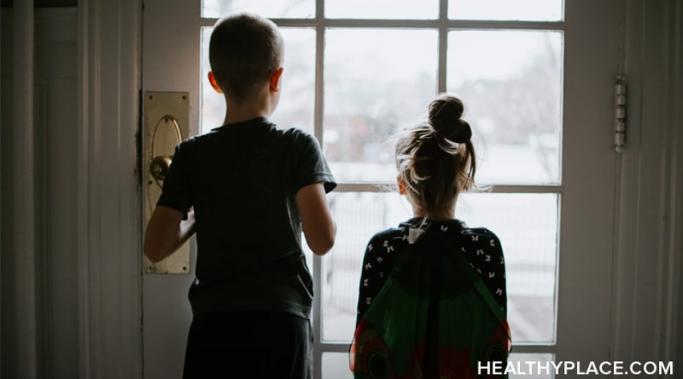I was raised by parents with mental illness. My mother has been diagnosed with a few mental illnesses, and if my father had not passed away at such a young age, he would have been diagnosed as well. Due to this circumstance, I was raised under certain conditions that others were not exposed to. This article is intended to bring attention to some of the characteristics in the childhood of an individual raised by parents with mental illness.
Parenting and Mental Illness
I feel a growing responsibility to normalize mental health discussions outside of dedicated platforms, such as this blog. For people like my brother who live with chronic mental illness to exist stigma-free, we need to demystify the topic of mental illness in the wider community.
Supporting someone in denial about their mental health can be a very delicate situation. A friend of mine is living this reality at present -- her partner is exhibiting clear symptoms of mental illness but is not able to have a conversation about it just yet. Supporting my friend has reminded me of when my brother was also in denial about his mental health before he received a diagnosis. Here are some of the things I learned through that experience.
When we're supporting someone with mental illness, I think it's very important to constantly examine how healthy our relationship with that person is. As my brother lives with chronic mental illness, I have first-hand experience of how unhealthy behaviors can easily creep into relationships, even with the best of intentions.
I have been down a serious Google rabbit hole this past week on the subject of mental illness masking other conditions. The reason for this is personal -- my brother is currently undergoing diagnostic testing for autism. The more I think about this, the more it makes sense that mental illness could inhibit timely diagnosis of other issues.
Respecting the boundaries of mentally ill loved ones should be a given, but sometimes we push these boundaries -- I've certainly been guilty of this in the past. Even when this is done out of good intent, I don't believe it is a fair thing to do. I have learned a lot on this topic through my experience with my brother, who has chronic mental health problems. Here's a bit of a reflection on those learnings.
Like many, I tuned into the Meghan and Harry interview last week, and I was particularly interested in Meghan's account of her mental illness being ignored by the royal family. Regardless of your thoughts on this particular couple, this is, sadly, a common issue in many families. Mental illness is ignored in families regularly, perhaps because we simply don't know how else to cope with it. I think we need to do better.
I am experiencing heightened anxiety at the moment, as I am waiting for important medical results. I usually avoid sharing my anxiety with my family, but this time I decided to be more open. Telling my brother, who has chronic mental health issues, about what I am going through was surprisingly helpful.
My parents filed for a divorce when I was 10 years old. This experience uprooted the development of my childhood and aided in the decline of my mental health. Although the divorce caused me a lot of pain, I learned how to face it and move past it.
Pets are important and beneficial in general, but they can play a special role in the lives of those with mental illness. I never owned any pets as a child, but I adopted a dog as an adult, and my brother has become an honorary pet parent as a result. I am amazed to watch how his relationship with my dog helps him cope with chronic anxiety and depression. Here is a short reflection on the benefits of pets for family members with mental illness.









